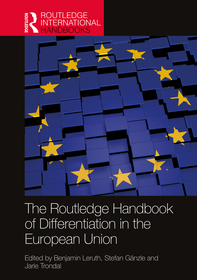
The Structure of Enquiry in Plato's Early Dialogues
-
20% KEDVEZMÉNY?
- A kedvezmény csak az 'Értesítés a kedvenc témákról' hírlevelünk címzettjeinek rendeléseire érvényes.
- Kiadói listaár GBP 32.00
-
15 288 Ft (14 560 Ft + 5% áfa)
Az ár azért becsült, mert a rendelés pillanatában nem lehet pontosan tudni, hogy a beérkezéskor milyen lesz a forint árfolyama az adott termék eredeti devizájához képest. Ha a forint romlana, kissé többet, ha javulna, kissé kevesebbet kell majd fizetnie.
- Kedvezmény(ek) 20% (cc. 3 058 Ft off)
- Kedvezményes ár 12 230 Ft (11 648 Ft + 5% áfa)
Iratkozzon fel most és részesüljön kedvezőbb árainkból!
Feliratkozom
15 288 Ft

Beszerezhetőség
Becsült beszerzési idő: A Prosperónál jelenleg nincsen raktáron, de a kiadónál igen. Beszerzés kb. 3-5 hét..
A Prosperónál jelenleg nincsen raktáron.
Why don't you give exact delivery time?
A beszerzés időigényét az eddigi tapasztalatokra alapozva adjuk meg. Azért becsült, mert a terméket külföldről hozzuk be, így a kiadó kiszolgálásának pillanatnyi gyorsaságától is függ. A megadottnál gyorsabb és lassabb szállítás is elképzelhető, de mindent megteszünk, hogy Ön a lehető leghamarabb jusson hozzá a termékhez.
A termék adatai:
- Kiadó Cambridge University Press
- Megjelenés dátuma 2018. március 15.
- ISBN 9781107689961
- Kötéstípus Puhakötés
- Terjedelem266 oldal
- Méret 230x153x15 mm
- Súly 420 g
- Nyelv angol
- Illusztrációk 2 b/w illus. 0
Kategóriák
Rövid leírás:
Offers an alternative interpretation and defends a radically new view of Plato's method of argument in the early dialogues.
TöbbHosszú leírás:
This book proposes and defends a radically new account of Plato's method of argument and enquiry in his early dialogues. Vasilis Politis challenges the traditional account according to which these dialogues are basically about the demand for definitions, and questions the equally traditional view that what lies behind Plato's method of argument is a peculiar theory of knowledge. He argues that these dialogues are enquiries set in motion by dilemmas and aporiai, incorporating both a sceptical and an anti-sceptical dimension, and he contends that Plato introduces the demand for definitions, and the search for essences, precisely in order to avoid a sceptical conclusion and hold out the prospect that knowledge can be achieved. His argument will be of great value to all readers interested in Plato's dialogues and in methods of philosophical argument more generally.
TöbbTartalomjegyzék:
Introduction; Part I. The Issue of the Justification of Plato's Essentialism: 1. The raising of the ti esti question; 2. How to answer the ti esti question; 3. The thesis of the priority of definition; Part II. The Role of Aporia and the Root of Plato's Essentialism: 4. What are Plato's early dialogues about?; 5. Whether-or-not questions and agonistic argument; 6. Whether-or-not questions and the articulation of aporiai; 7. Aporia-based enquiry aiming at knowledge; 8. What is behind the ti esti question?; Bibliography; General index; Index of passages cited.
Több

Bioanalytics for Beginners
29 011 Ft
26 691 Ft











